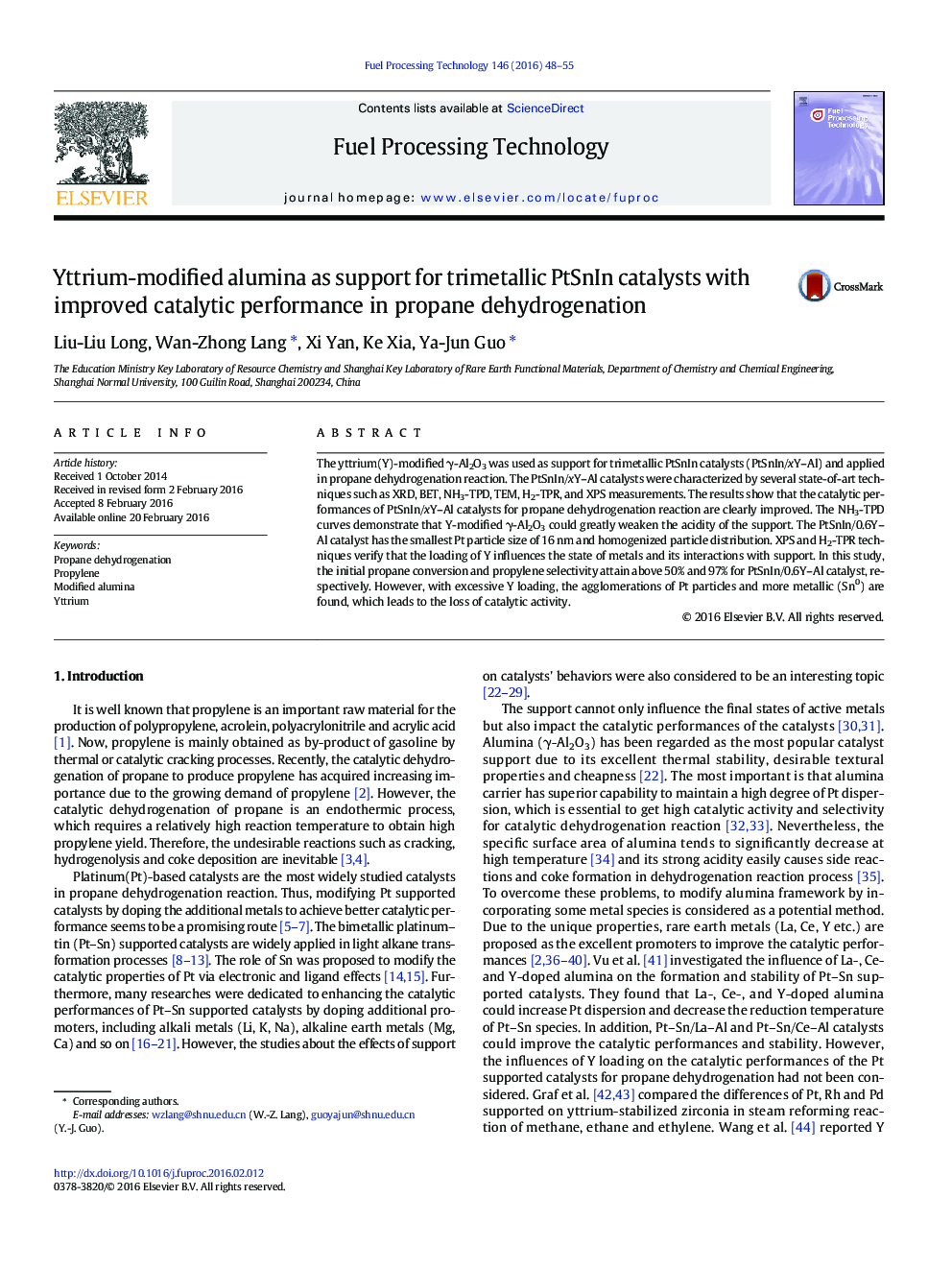| Article ID | Journal | Published Year | Pages | File Type |
|---|---|---|---|---|
| 209224 | Fuel Processing Technology | 2016 | 8 Pages |
•Yttrium influences the interactions between PtSnIn and support alumina.•PtSnIn/xY–Al has higher activity than that of bare PtSnIn/Al.•PtSnIn/0.6Y–Al catalyst exhibits the highest catalytic stability.
The yttrium(Y)-modified γ-Al2O3 was used as support for trimetallic PtSnIn catalysts (PtSnIn/xY–Al) and applied in propane dehydrogenation reaction. The PtSnIn/xY–Al catalysts were characterized by several state-of-art techniques such as XRD, BET, NH3-TPD, TEM, H2-TPR, and XPS measurements. The results show that the catalytic performances of PtSnIn/xY–Al catalysts for propane dehydrogenation reaction are clearly improved. The NH3-TPD curves demonstrate that Y-modified γ-Al2O3 could greatly weaken the acidity of the support. The PtSnIn/0.6Y–Al catalyst has the smallest Pt particle size of 16 nm and homogenized particle distribution. XPS and H2-TPR techniques verify that the loading of Y influences the state of metals and its interactions with support. In this study, the initial propane conversion and propylene selectivity attain above 50% and 97% for PtSnIn/0.6Y–Al catalyst, respectively. However, with excessive Y loading, the agglomerations of Pt particles and more metallic (Sn0) are found, which leads to the loss of catalytic activity.
